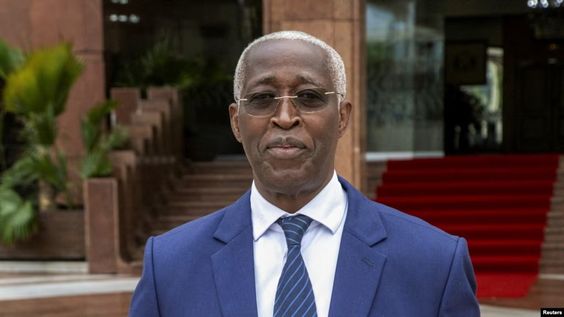Africa
Government of Gabon Issues Arrest Threats Due to Payment for Uncompleted Work

Government of Gabon Issues Arrest Threats Due to Payment for Uncompleted Work
On Tuesday, the military-installed government in Gabon threatened to arrest the owners of companies that had taken payments for services that had not been rendered.
Raymond Ndong Sima, Gabon’s military-appointed prime minister, said the junta-led government will order contractors who abandoned work after collecting money to resume their projects or face arrest while ordering the restart of work at utility and construction sites after years of abandonment.
The declaration was a component of the promised anti-corruption campaign.
Sima reported that numerous businesses had picked up where they left off after Gen. Brice Oligui Neguema, the leader of the coup in the central African nation, visited several abandoned road, water, and energy projects in Libreville on Saturday.
Images of revellers were shown on Gabon’s national television on Monday when Nguema visited the locations in a number of impoverished suburbs. Children and women embraced Nguema and shook hands with him as some of them sobbed. They said it was the first visit by a Gabonese leader to impoverished suburban areas, a claim VOA was unable to independently confirm.
Nguema was informed by the general populace that former President Ali Bongo Ondimba used to transport construction machinery and make promises of potable water, power, and good roads whenever elections were close. However, the construction would stop and the tools would be taken away after the elections.
Nguema claimed on television that a military junta-created anti-corruption task force had a list of businesses that received funding from the previous regime but never carried out projects.
READ ALSO: Gabonese president’s ex-wife has been jailed
According to citizens, some businesses started up again as soon as Nguema left.
Barber A resident of Bizango-Bibere named Jacques Abossolo said on state television that some of the projects there had been abandoned for ten years.
According to Joseph Dotse, a road construction engineer in Libreville, Nguema requested that his business pick up the project it had briefly halted owing to severe rains. He estimated that work on a 6-kilometer stretch of road Nguema toured would be finished by his company, Gabon Construction, in 10 days.
Dotse claimed that Bongo covered half of the cost of the road work and predicted that the military junta would pay the balance.
He said that companies owned by Bongo, his family, and friends never carried out tasks after obtaining funding. Attorneys for Bongo refute the charges.
According to the military-installed administration in Gabon, Nguema will travel to additional towns and villages in the coming days to ensure that construction is resumed on abandoned sites and that contractors who stole state cash would be imprisoned if they do not reimburse the money.
Guy Roger Makongo, a lecturer in political science at Omar Bongo University in Libreville, said on a messaging app that Nguema has been according to the plan he established to reestablish democratic governance after the bloodless coup on August 30.
Makongo stated that Nguema has established a constitutional council, selected a government, and members of the senate and national assembly from the opposition, civil society, and the army in addition to battling corruption and carrying out consultations to build up a national debate by the end of this year.
Nguema has not specified a potential date for a restoration to constitutional order, which has led many people to doubt that he will cede power to civilian control anytime soon, Makongo added.
In order to improve living circumstances, particularly in the hinterlands, Gabon’s military junta pledged last week to spend more than $10 million of what it claimed was confiscated ill-gotten cash on water, electricity, roads, and educational facilities.
The military junta claimed to have also found more than 300 high-end cars. The junta claimed that the Bongo family and associates had their vehicles and money stolen.
According to the military-appointed government, eight of the deposed leader’s aides and members of his Cabinet were also detained. Sylvia Bongo Ondimba Valentin, the Franco-Gabonese president’s wife, Noureddin Bongo Valentin, and eight other people were also detained.
They were accused of a number of offences, including treason, corruption, theft, money laundering, forgery, and abuse of government facilities.
